Engaging the private sector to deliver quality maternal and newborn health services for universal health coverage: lessons from policy dialogues
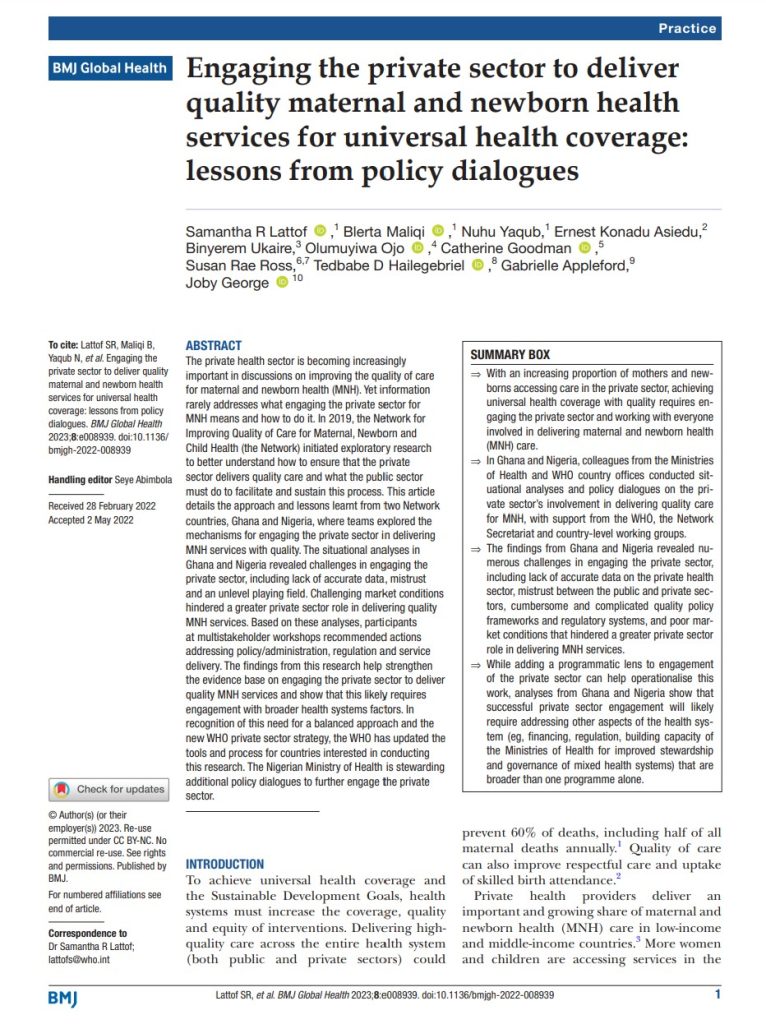
The findings from this research help strengthen the evidence base on engaging the private sector to deliver quality MNH services and show that this likely requires engagement with broader health systems factors.
Overcoming blame culture: key strategies to catalyse maternal and perinatal death surveillance and response
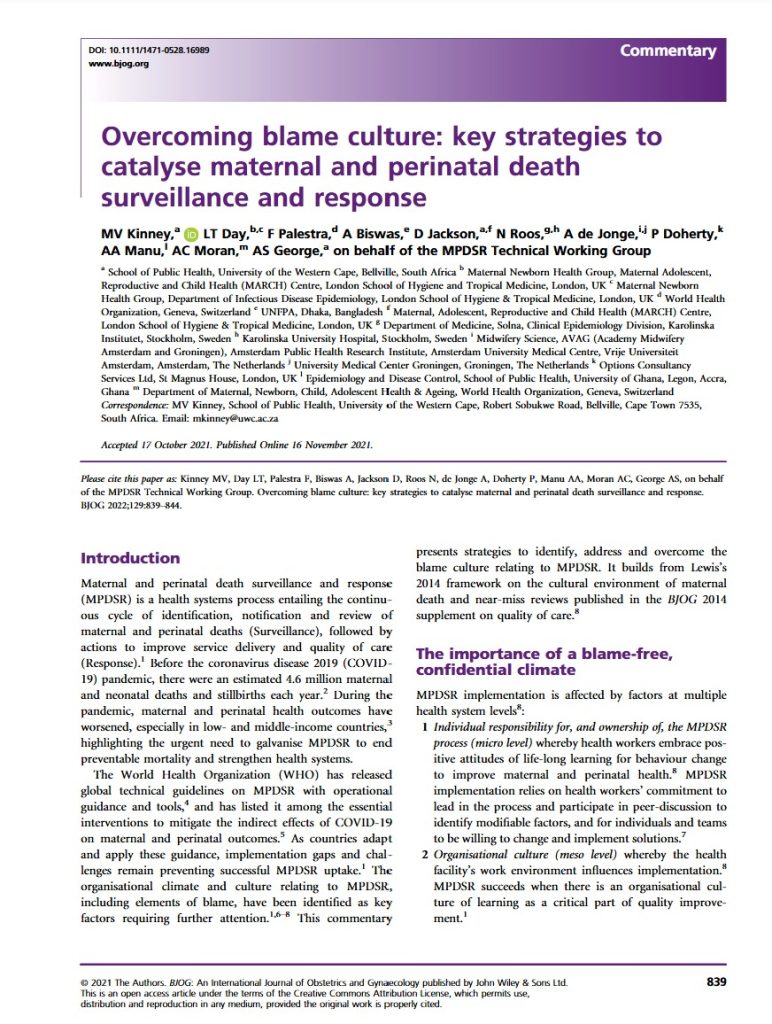
This commentarypresents strategies to identify, address and overcome the blame culture relating to MPDSR. It builds from Lewis’s2014 framework on the cultural environment of maternaldeath and near-miss reviews published in the BJOG 2014supplement on quality of care.
Private sector delivery of maternal and newborn health care in low-income and middle-income countries: a scoping review protocol
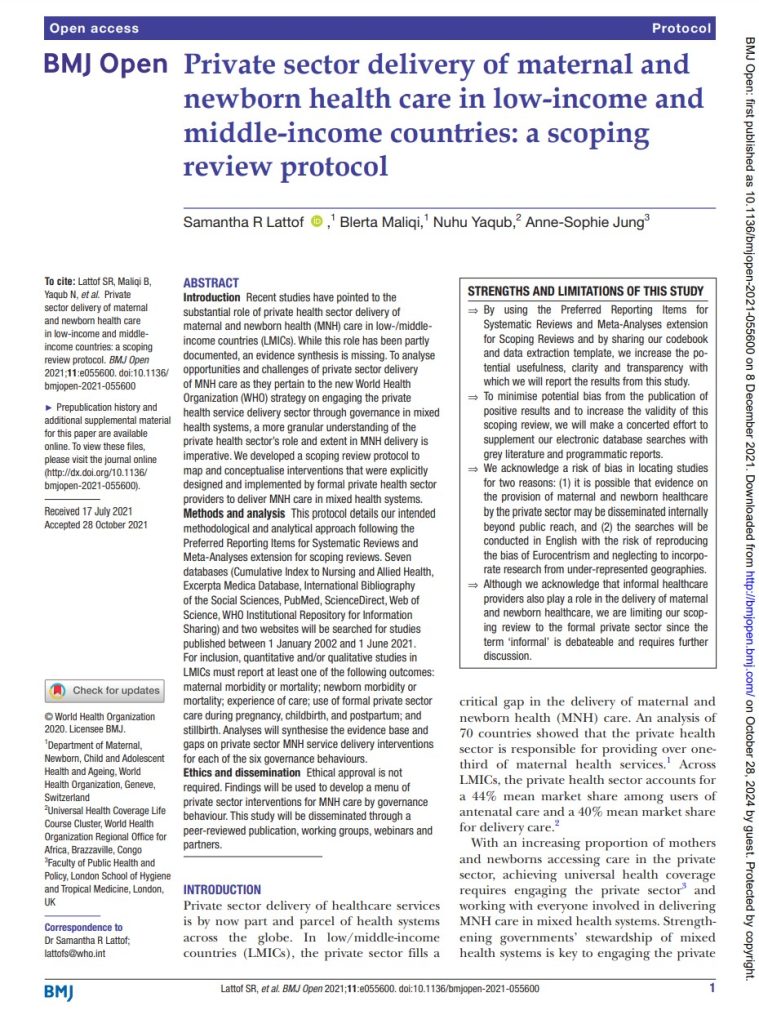
This study provides a scoping review protocol to map and conceptualise interventions that were explicitly designed and implemented by formal private health sector providers to deliver MNH care in mixed health systems.
Scoping review of interventions to maintain essential services for maternal, newborn, child and adolescent health and older people during disruptive events
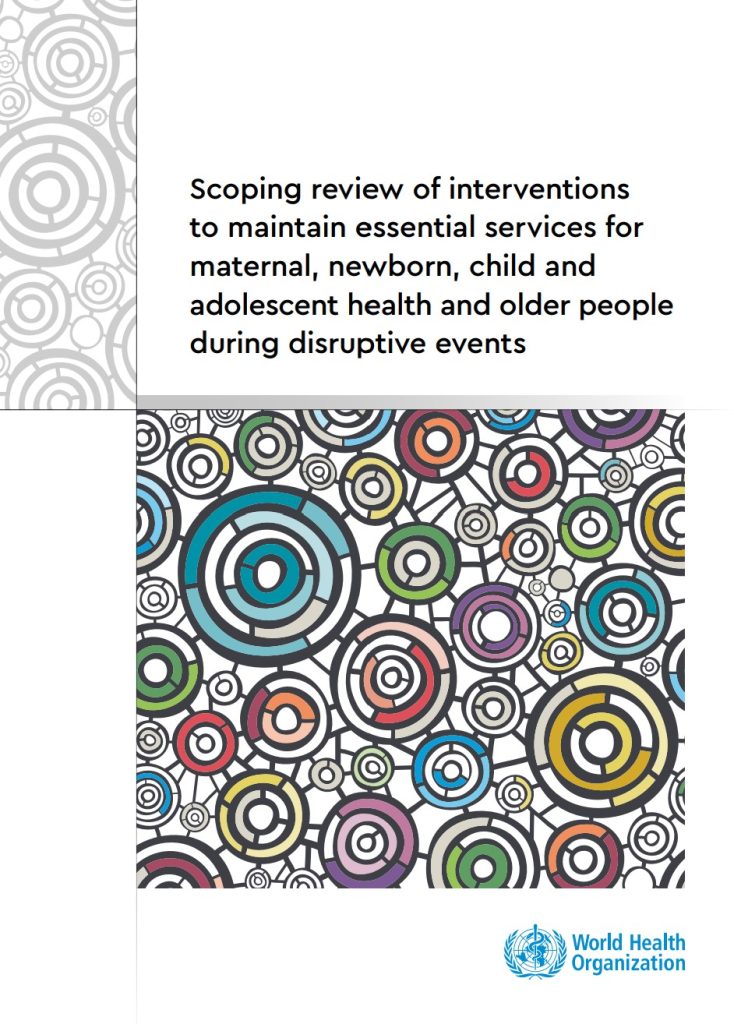
The objective of this scoping review is to identify interventions implemented to maintain the provision and use of essential services for MNCAAH during disruptive events – including COVID-19, Ebola, SARS, Zika virus and natural disasters and humanitarian emergencies.
Assessing the quality of care for children attending health facilities: a systematic review of assessment tools
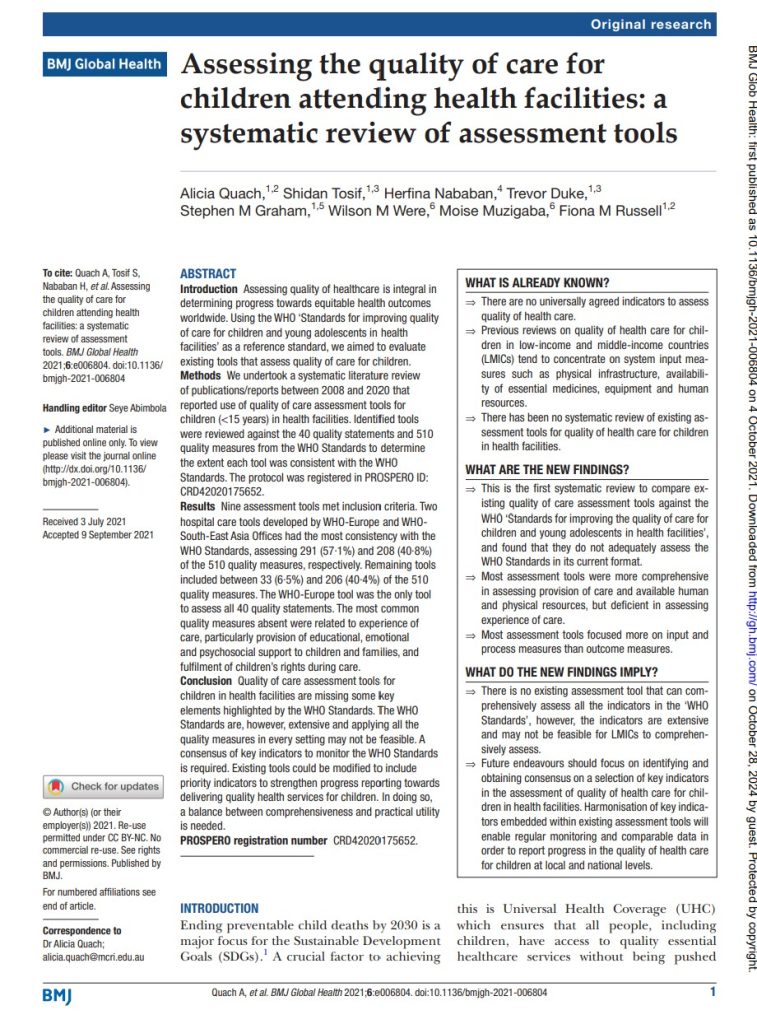
Using the WHO ‘Standards for improving quality of care for children and young adolescents in health facilities’ as a reference standard, this paper aims to evaluate existing tools that assess quality of care for children.
Human Resources for Health-Related Challenges to Ensuring Quality Newborn Care in Low- and Middle-Income Countries: A Scoping Review
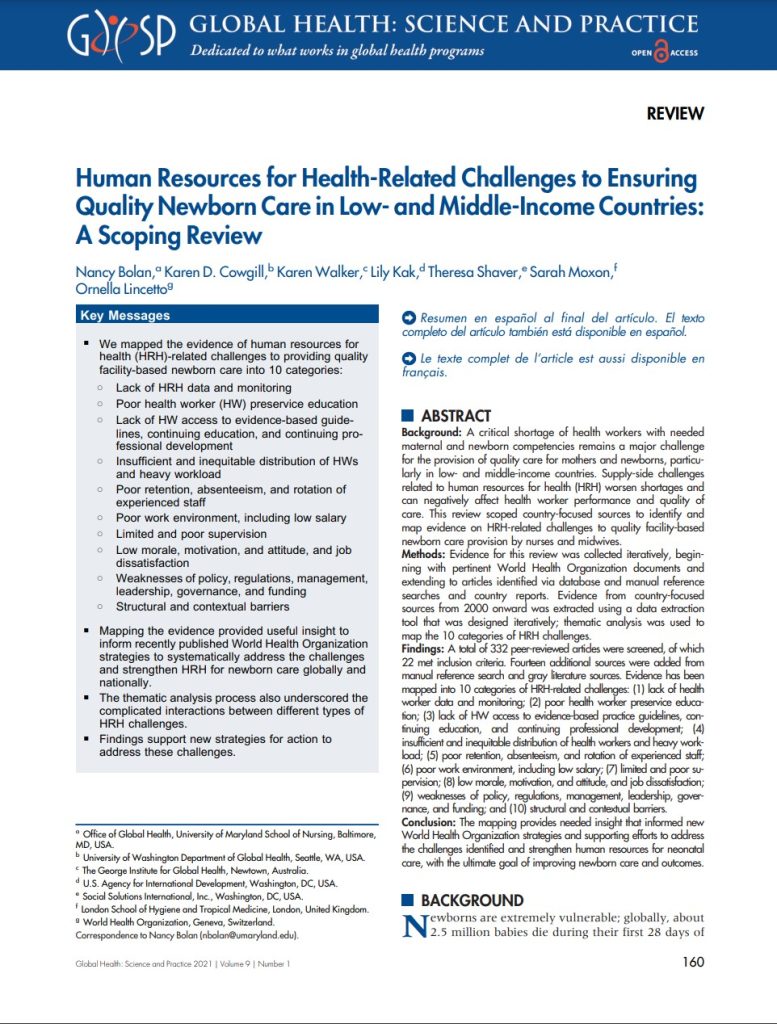
This scoping review mapped the evidence of human resources for health-related challenges to providing quality facility-based newborn care into 10 categories amd provided useful insight to inform recently published World Health Organization strategies to systematically address the challenges and strengthen HRH for newborn care globally and nationally.
Impact of COVID-19 on SRMNCAH services, Regional strategies, Solutions and Innovations: A comprehensive report
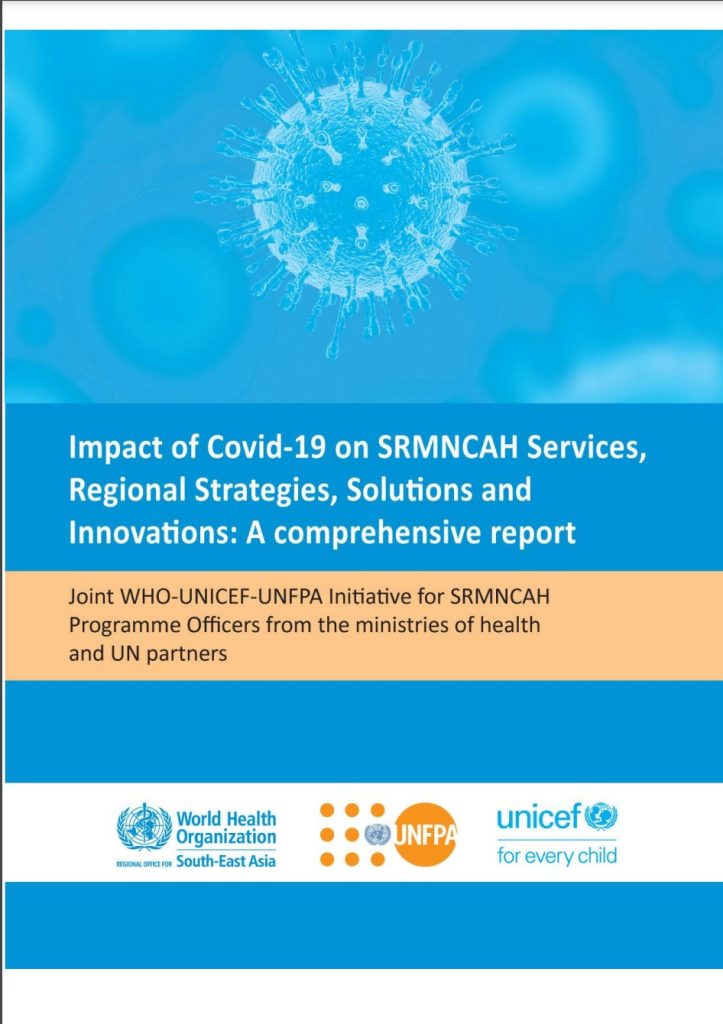
This mapping exercise assessed the situation of delivery of essential SRMNCAH services during gthe COVID-19 pandemic. This report shares the results of the mapping exercise, summarizes key findings, and documents what had worked, as well as sharing the key lessons learnt that can be forward and shared across countries.